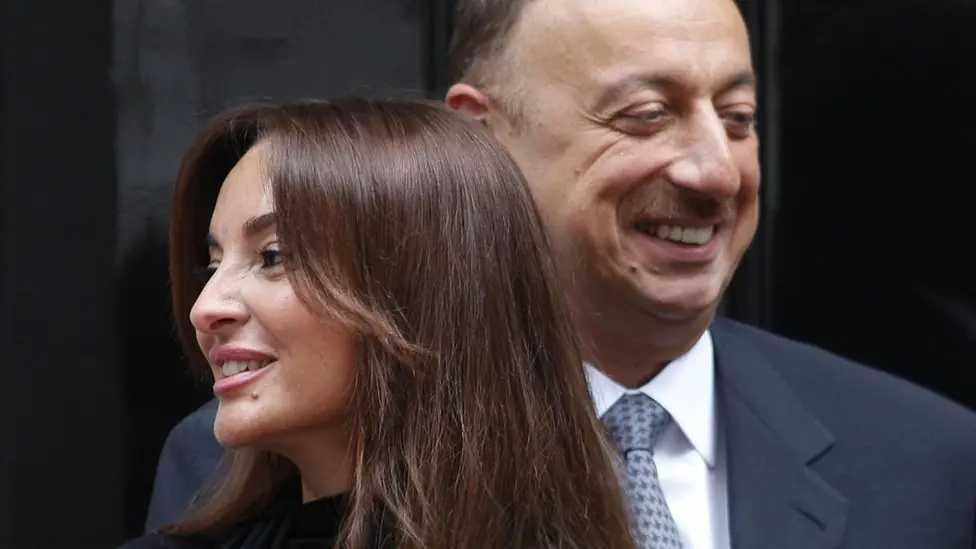On Friday, Russia will hold a grand spectacle in Moscow to commemorate the 80th anniversary of the Soviet Union’s victory over Nazi Germany.
The official holiday — arguably the most important non-religious holiday in modern Russia — will feature a parade, and will be attended by several leaders from the Caucasus, including Armenian Prime Minister Nikol Pashinyan, Abkhazian President Badra Gunba, South Ossetian President Alan Gagloev, and likely the heads of Russian republics in the North Caucasus, such as Chechen Head Ramzan Kadyrov. At the last minute, Azerbaijani President Ilham Aliyev said he was not going.
The war was perhaps the defining event of the Soviet Union’s 69-year history, leaving no family or region untouched. Millions of soldiers from the Caucasus fought in the war and hundreds of thousands were killed.
The soldier who raised the Soviet flag over the Reichstag in what is one of the most iconic photos of the war was Daghestani, and next to him was a Georgian.
In terms of military history, the Caucasus played an important role, with the seizure of Azerbaijani oil fields being one of Germany’s primary objectives. While Germany never made it to the South Caucasus, they came close, occupying vast swathes of the North Caucasus. As a historical event, a monumental example of tragedy and collective resistance, it deserves to be commemorated.
But Friday’s holiday has almost nothing to do with the mass suffering that the Soviet Union experienced during the war.
Instead, under Russian President Vladimir Putin, the memory of the war has been twisted, appropriated, and turned into a sick cult of jingoism and imperialism. The point of Victory Day is no longer to remember those who were killed during the war, but to showcase Russia’s military prowess and to serve as an explicit threat to the West. One of the defining features of the modern-day interpretation of World War II in Russia can be illustrated by a phrase that is often repeated in Victory Day commemorations: ‘We can do it again’ — meaning Russia can take Berlin again.
The holiday becomes even more dark and cynical in light of Russia’s full-scale war in Ukraine, as the Kremlin seeks to frame its unprovoked aggression on its neighbour as a re-do of the historic feats of the Red Army during World War II — even the villains, the so-called Ukrainian Nazis, are the same.
The spectacle, however, masks the truths about the military history of the Soviet Union (and Russia) that the Kremlin prefers to avoid.
While veterans are celebrated every Victory Day through marches like that of ‘the Immortal Regiment’, consisting of a procession of names and faces of Red Army soldiers, in real life, injured and disabled veterans have often been discarded by a state that preferred to frame the war in terms of heroism rather than suffering.
To cite a more recent example — and one in our region — for all of its obsession with military glory, Russia has time and time again treated its own citizens as cannon fodder or collateral damage in pursuit of imperialist goals. This was true in Chechnya, and it is true in Ukraine.
The parade itself has become a political show, an opportunity for the leaders of neighbouring countries — or those that are ideologically aligned — to come to Moscow and bend the knee, to demonstrate their shared enmity of the West, allegiance to Putin, or all of the above.
The fact that Pashinyan is attending is rather telling — Russia barely even pretends to be an actual ally of Armenia anymore, and instead is resorting to information wars and not-so veiled threats aimed at Yerevan.
Despite reports indicating he would attend, which would have marked the first time since 2015, the manner in which Aliyev’s last minute cancellation was delivered further illustrated how the parade is a political set-piece rather than an honest commemoration of the war.
Russia and Azerbaijan have maintained a sort of marriage of convenience, but last year, Russian air defence almost certainly shot down an Azerbaijani passenger jet, killing dozens. Despite Aliyev’s demands that Russia apologise, the Kremlin obfuscated, deflected, and delayed. The snarky way that Aliyev said he was not going was more of a sign of Azerbaijan’s current related displeasure with the Kremlin than anything actually having to do with Victory Day itself.
There will be no official Georgian representation at the Victory Day parade in Moscow, as there are no official diplomatic relations between Georgia and Russia. Nonetheless, 9 May is still a state holiday in Georgia, but one that is complicated to commemorate without it being seen as a demonstration of pro-Russian sympathies. There will be small, informal marches on Friday, which OC Media will cover, as well as a visit by government officials to war memorials, but the larger, nationally organised spectacles were scrapped years ago.
For many, Russia’s co-opting of World War II memory for its own purposes has poisoned what should be a non-political event. More importantly, Russia has taken what was a Soviet victory and tried to turn it into their own.
There is no simple answer as for how to reclaim this historical memory, but it’s worth starting with questioning the dogmatic, one-size-fits-all approach that Russia has attempted to impose.






